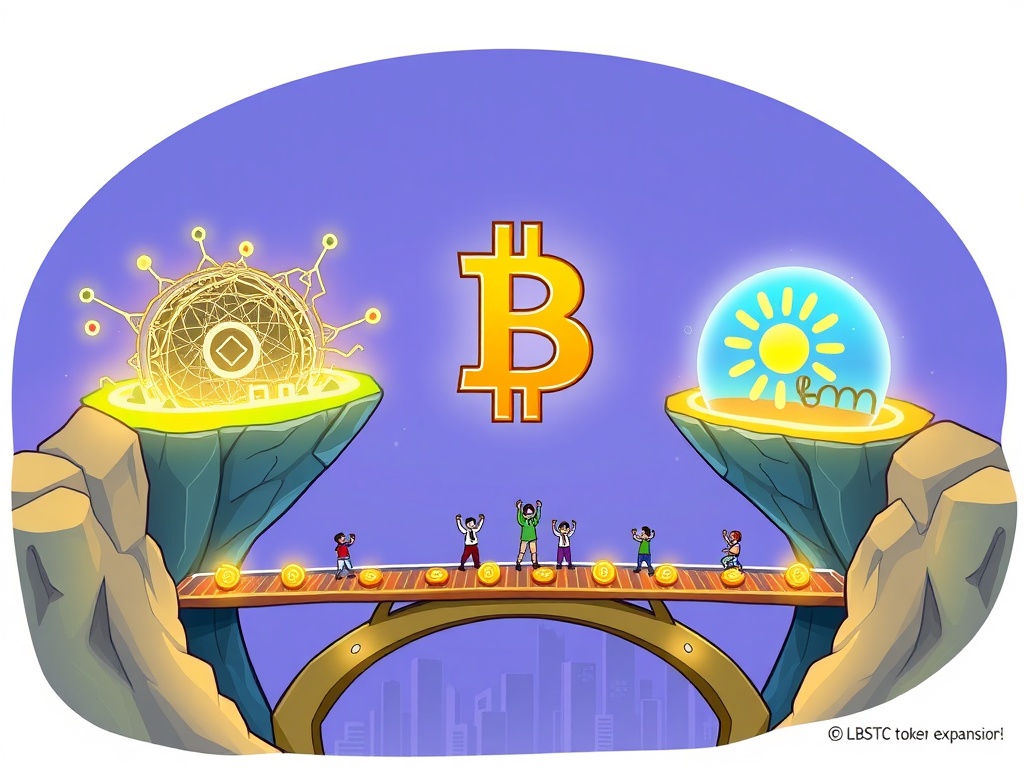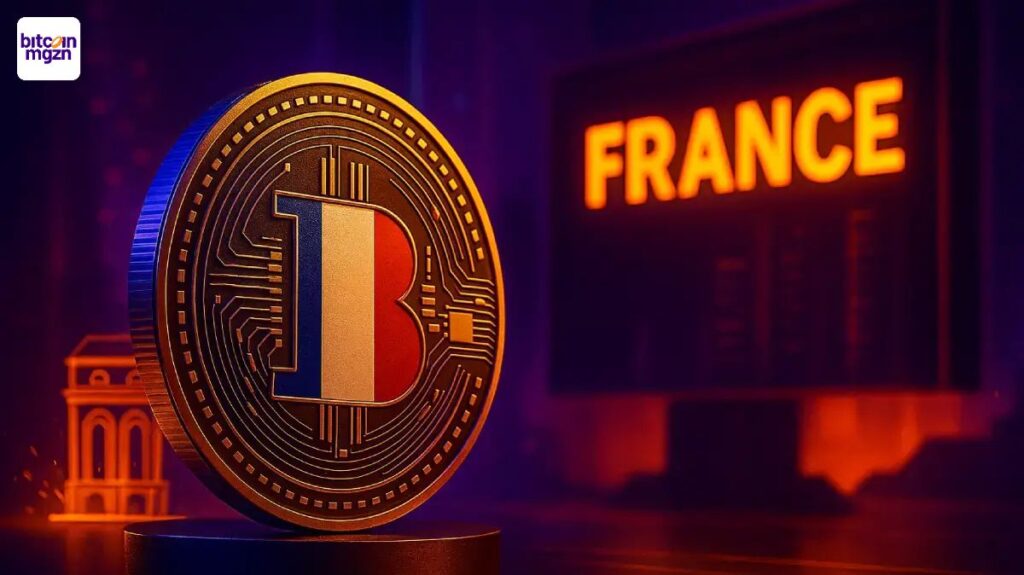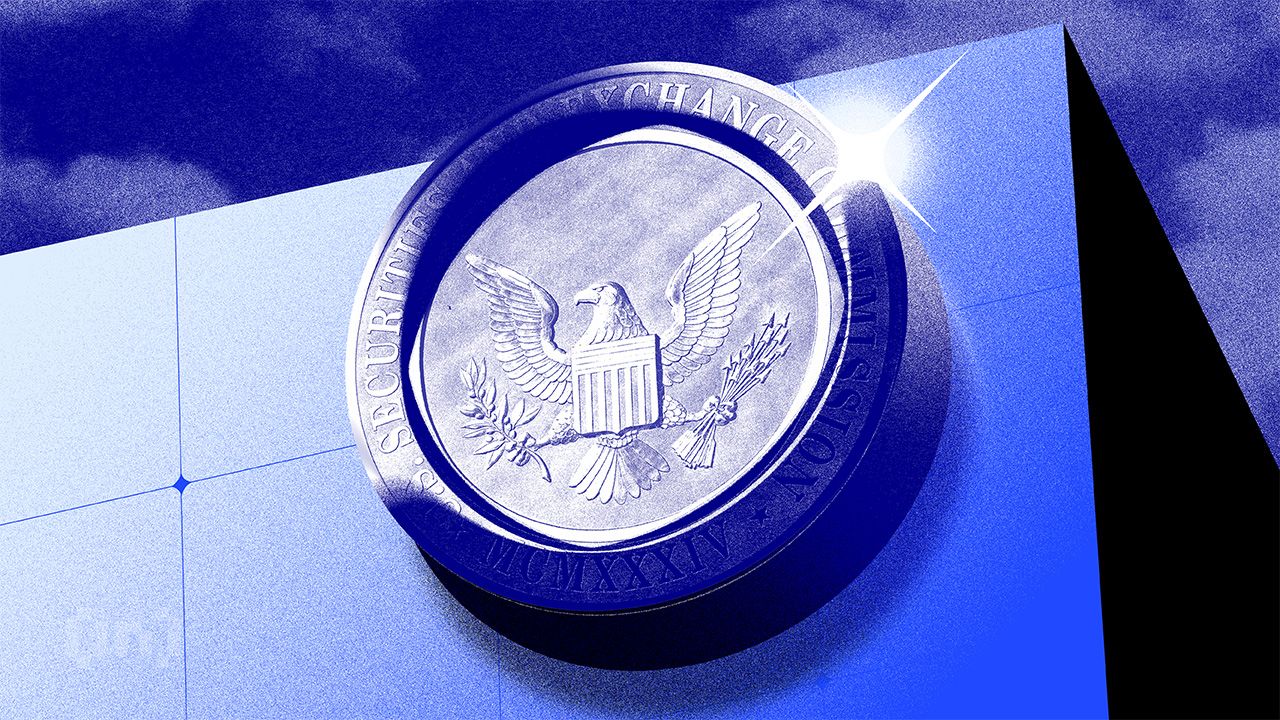LBTC Token Expansion: Lombard Finance Unleashes New Possibilities on Solana
BitcoinWorld
LBTC Token Expansion: Lombard Finance Unleashes New Possibilities on Solana
Exciting news is brewing in the world of decentralized finance (DeFi)! Lombard Finance (BARD), a prominent Bitcoin DeFi firm, recently made a significant announcement: its innovative LBTC token expansion is coming to the Solana blockchain. This strategic move is set to create waves, offering new avenues for liquidity and utility for Bitcoin holders within the rapidly growing Solana ecosystem. According to The Block, this development marks a pivotal moment for cross-chain interoperability.
Understanding LBTC: The Core of This Token Expansion
Lombard Finance developed LBTC as a liquid staking Bitcoin token. But what exactly does that mean for you, the user? Essentially, LBTC allows Bitcoin holders to participate in DeFi activities while still retaining access to their BTC’s value. It’s like having your cake and eating it too – your Bitcoin remains liquid and usable, generating potential yield in the DeFi space.
The upcoming LBTC token expansion to Solana is a game-changer because it extends this powerful utility to a new, high-performance blockchain. Solana is renowned for its speed, low transaction costs, and scalability, making it an attractive destination for DeFi projects looking to reach a wider audience and offer a smoother user experience.
- Liquidity: Keep your Bitcoin accessible while it’s earning potential rewards.
- Yield Generation: Participate in DeFi protocols to potentially earn rewards.
- Interoperability: Bridge Bitcoin’s established value to other blockchain ecosystems.
Why Solana is Key for LBTC Token Expansion
Lombard Finance’s decision to choose Solana for its LBTC token expansion is a highly strategic one. Solana boasts a robust infrastructure that supports high transaction throughput and near-instant finality. These features are crucial for the fast-paced world of DeFi, where efficiency directly impacts user experience and protocol performance. This move positions LBTC to tap into Solana’s vibrant developer community and its rapidly expanding user base.
Consider the immense impact: bringing Bitcoin’s deep liquidity to Solana’s efficient network can unlock new financial primitives and opportunities. It’s a powerful synergy, combining the established trust and value of Bitcoin with the innovative, high-speed capabilities of Solana. This integration promises a more seamless and cost-effective DeFi experience for everyone involved.
- High Throughput: Solana handles thousands of transactions per second, ideal for DeFi.
- Low Fees: Significantly reduces the cost of DeFi interactions, benefiting users.
- Scalability: Built to support massive growth and adoption without congestion.
- Vibrant Ecosystem: Home to a diverse range of innovative DeFi applications and protocols.
Where Will LBTC Token Expansion Integrate on Solana?
The LBTC token expansion isn’t just about arriving on Solana; it’s about integrating into its core DeFi infrastructure. Lombard Finance plans to supply LBTC to several leading Solana-based platforms. This ensures immediate utility and broad accessibility. According to the announcement, these key integrations include:
- Jupiter: A prominent decentralized exchange (DEX) aggregator, enhancing liquidity for LBTC.
- Drift: A leading perpetuals DEX, offering new trading and leverage possibilities for LBTC holders.
- Kamino: A concentrated liquidity manager, optimizing yield strategies and capital efficiency for LBTC.
- Meteora: A dynamic liquidity protocol, further deepening market access and utility for LBTC.
These integrations are vital. They ensure that LBTC will be immediately usable and accessible across a spectrum of DeFi services, from trading and lending to yield farming. This widespread availability will significantly boost LBTC’s utility and adoption within the Solana ecosystem, fostering a more robust and interconnected DeFi landscape.
Benefits for Users: What the LBTC Token Expansion Means for You
For users, the LBTC token expansion translates into more options and greater flexibility. If you’re a Bitcoin holder, you now have a new pathway to leverage your assets within a high-performance DeFi environment. This could mean:
- Accessing new yield opportunities that were previously unavailable on other chains.
- Participating in faster, cheaper transactions, making DeFi more accessible.
- Diversifying your DeFi portfolio across different blockchains, enhancing risk management.
- Engaging with innovative Solana protocols using your Bitcoin’s value.
While exciting, users should always conduct their own research (DYOR) before engaging with any DeFi protocol. Understanding the risks associated with smart contracts, impermanent loss, and protocol security is crucial for navigating this innovative space safely and effectively.
The Broader Impact of LBTC Token Expansion on DeFi
The LBTC token expansion represents a significant step towards a more interconnected and liquid DeFi landscape. It highlights a growing trend where projects aim to bridge the vast liquidity of Bitcoin with the innovative capabilities of other high-throughput blockchains. This cross-chain collaboration is essential for the long-term growth and maturation of the entire crypto ecosystem. It pushes the boundaries of what’s possible, fostering greater efficiency and accessibility.
Ultimately, Lombard Finance’s move is a testament to the ongoing evolution of DeFi, pushing boundaries and creating more efficient, accessible financial tools for everyone. It’s a compelling vision of a future where digital assets flow seamlessly across chains, unlocking unprecedented value and fostering a truly global decentralized financial system.
Summary: Bridging Bitcoin to Solana’s Future
Lombard Finance’s announcement to bring its LBTC liquid staking Bitcoin token to the Solana blockchain marks a pivotal moment for both ecosystems. This strategic LBTC token expansion promises to unlock new liquidity, enhance user experience through Solana’s speed and low costs, and integrate seamlessly with leading DeFi protocols like Jupiter, Drift, Kamino, and Meteora. As the DeFi space continues to mature, such cross-chain initiatives are vital for fostering innovation and providing users with more robust and versatile financial tools. The future of Bitcoin DeFi on Solana looks incredibly bright, offering a glimpse into a more interconnected and efficient decentralized world.
Frequently Asked Questions (FAQs)
What is LBTC?
LBTC is a liquid staking Bitcoin token developed by Lombard Finance. It allows Bitcoin holders to utilize their BTC in DeFi protocols while maintaining liquidity and potential for yield generation.
Why is Lombard Finance expanding LBTC to Solana?
Lombard Finance is expanding LBTC to Solana to leverage Solana’s high speed, low transaction costs, and scalability. This move aims to enhance liquidity, improve user experience, and tap into Solana’s vibrant DeFi ecosystem.
Which Solana protocols will integrate LBTC?
Lombard Finance plans to supply LBTC to several leading Solana-based platforms, including Jupiter (DEX aggregator), Drift (perpetuals DEX), Kamino (liquidity manager), and Meteora (dynamic liquidity protocol).
What are the main benefits of this LBTC token expansion for users?
Users will benefit from new yield opportunities, faster and cheaper transactions, increased flexibility in managing their Bitcoin assets, and the ability to engage with a wider range of DeFi protocols on Solana.
Is it safe to use LBTC on Solana DeFi protocols?
While the LBTC token expansion opens exciting opportunities, users should always conduct thorough research (DYOR) on any DeFi protocol. Understand the inherent risks associated with smart contracts, impermanent loss, and platform security before committing funds.
Did you find this article insightful? Share it with your network and help spread the word about the exciting developments in cross-chain DeFi!
To learn more about the latest crypto market trends, explore our article on key developments shaping Bitcoin institutional adoption.
This post LBTC Token Expansion: Lombard Finance Unleashes New Possibilities on Solana first appeared on BitcoinWorld and is written by Editorial Team
You May Also Like

Sui ($SUI) Down 13.1%, Solana ($SOL) Down 7.1%: Digitap ($TAP) is the Only Altcoin Thriving

Frankrijk belast ‘niet productief crypto vermogen’ – dreigt voor heel Europa
